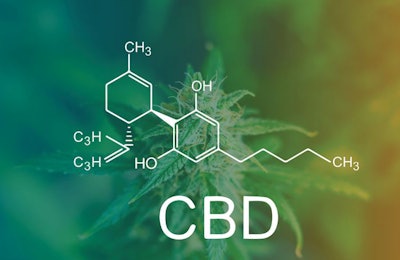
With the market for Cannabidiol (CBD) pet products in the U.S. continuing to expand, it’s understandable there may be growing pains (mainly in terms of educating consumers and squashing misconceptions), but in the U.K. the situation is more complex.
In terms of human usage, CBD products are widely available in stores across the U.K., and doctors have been able to prescribe medicinal cannabis products to patients since the end of 2018. While regulations surrounding medicinal cannabis and CBD for humans have been relaxed, it’s not quite as simple for the pet food industry.
Challenges with CBD in pet food
While CBD is considered a food product in terms of human use, the Veterinary Medicines Directorate (VMD) — the regulatory body for animal products in the U.K. — deem it to be a veterinary medicine product, and that’s where the problem with CDB-based pet food lies.
In a statement published in September 2018, the VMD confirmed its decision that any products containing CBD are veterinary medicines and are therefore subject to the relevant regulations. Its decision was made by looking at the Veterinary Medicines Regulations’ (VMR) definition of a veterinary medicine and how CBD products fit in. In other words, that they have: “any substance or combination of substances that may be used in, or administered to, animals with a view either to restoring, correcting or modifying physiological functions by exerting a pharmacological, immunological or metabolic action, or to making a medical diagnosis.”
This classification means that any CBD-based products, including food, now need a marketing authorization (MA) to be sold in the U.K., and so far no CBD-based product has been granted an MA. Without one, they can’t be bought and given to animals unless there’s a veterinary prescription, so retailers are unable to sell CBD-based pet foods.
While the CBD sector of the U.S. pet market is projected to be one of the fastest-growing in terms of revenue, it seems that in the U.K. there’s still some way to go.















